Cisco Unified Communications vs Poly
June 09, 2023 | Author: Adam Levine
12
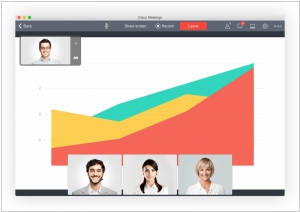
With Cisco Unified Communications, your company can connect co-workers, partners, vendors, and customers with the information and expertise they need, access and share video on the desktop, on the road, and on-demand, as easily as making a phone call, facilitate better team interactions, dynamically bringing together individuals, virtual workgroups, and teams, make mobile devices extensions of the corporate network so mobile workers can be productive anywhere
4
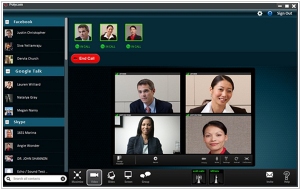
Collaborate anywhere, anytime, with anyone using Polycom video, voice, and content-sharing solutions. One-touch ease; audio and video with crystal-clear quality; enterprise-grade security, reliability and scalability. Polycom solutions give you the flexibility to meet and collaborate with colleagues, partners, and customers in any environment―immersive theater, conference room, work office, home office, or on-the-go. Wherever you are, wherever you go.
Cisco Unified Communications and Poly (formerly Polycom) are both renowned providers of communication and collaboration solutions, but they have distinct offerings and approaches. Cisco Unified Communications is a comprehensive suite of communication and collaboration tools that includes IP telephony, video conferencing, messaging, presence, and contact center solutions. It provides a unified platform for seamless communication across various devices and offers extensive integration with other Cisco collaboration products and enterprise systems. Poly, on the other hand, specializes in audio and video conferencing solutions, offering a wide range of conference phones, video endpoints, and collaboration accessories. Poly focuses on delivering high-quality audio and video experiences, along with interoperability with various communication platforms.
See also: Top 10 Videoconferencing software
See also: Top 10 Videoconferencing software
Cisco Unified Communications vs Poly in our news:
2019. Polycom (and Plantronics) rebrand as Poly

Plantronics has made an announcement regarding its transformation into Poly, a technology company that prioritizes the human experience in communications and collaboration. The primary objective of Poly is to enable communication that is as immersive and natural as face-to-face interactions. As part of this rebranding effort, the video-conferencing software previously known as Polycom will also adopt the name Poly. In 2018, Plantronics, renowned for its audio communications equipment catering to both businesses and consumers, acquired Polycom for a sum of $2 billion. Leveraging the extensive audio and video expertise of both Plantronics and Polycom, Poly, which signifies "many," offers a wide range of intelligent endpoints that seamlessly connect with unified communications platforms. By doing so, it aims to minimize distractions, simplify complexity, and bridge gaps in the modern workspace. Poly strives to be the preferred solution for collaboration whenever and wherever cloud-based communication reaches individuals.
2018. Polycom launched Cloud Services for Enterprise
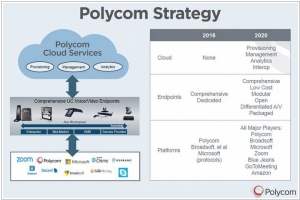
Polycom is enhancing its enterprise cloud capabilities through the introduction of Polycom Cloud Services. This comprehensive cloud solution primarily focuses on providing enterprises with efficient tools for provisioning and managing various voice and video endpoints found in conference rooms worldwide. One of the key offerings within Polycom Cloud Services is Polycom Device Management Services (PDMS), which empowers enterprises to effectively manage these devices, monitor their performance, and resolve any arising issues. This service enables customers to easily provision, update, and secure a large number of desk and conference room phones. Initially, PDMS will be available for audio systems, but Polycom anticipates expanding its support to include video conferencing devices by the end of the year.
2016. Mitel acquired Polycom for $1.96B

Canadian enterprise communications provider Mitel has announced its intention to acquire Polycom through a cash-and-stock agreement valued at $1.96 billion. Polycom will retain its branding following the acquisition. Both companies are competitors of Cisco and Avaya. Mitel is renowned for its IP telephony solutions, including PBX systems, while Polycom specializes in conferencing services. They also offer SIP technology, catering to a customer base that includes 82% of Fortune 500 companies. This deal represents a significant milestone in recent enterprise collaboration and communication collaboration endeavors.
2014. Cisco-Jive and 5 other Unified Collaboration leaders
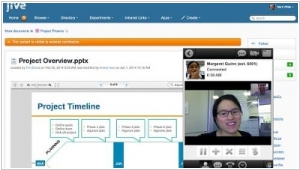
Large enterprise customers have grown increasingly impatient, seeking a single solution that offers collaboration, social interactions, and real-time communication without the need for extensive integration projects. To meet this demand, software vendors have coined the term "Unified Collaboration" and now market their solutions under this banner. However, not every IT giant is capable of building such a comprehensive system on their own. In some cases, collaboration becomes necessary. For instance, leading unified communications provider Cisco recently partnered with social networking provider Jive, announcing that they now offer the best solution in the market. Nevertheless, industry experts highlight that Cisco faces strong competition from five key rivals: Microsoft (Yammer + Lync), IBM (IBM Connections + IBM Sametime), Citrix (GoToMeeting + Podio), Siemens (Unify + Ansible), and Salesforce (Chatter + DimDim). However, it should be noted that the latter two vendors are currently considered potential competitors, as their Unified Communications (UC) solutions are not yet fully developed.
2014. Cisco and Google unite against Microsoft on the Unified Communications market
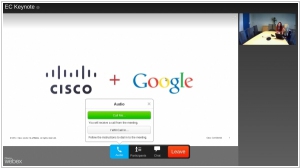
Cisco is a competitor to Microsoft's Lync in the unified communications market, while Google competes with Microsoft in the operating system market. Therefore, it makes sense for Cisco and Google to establish a partnership, and that's exactly what they did. Recently, the companies brought Cisco Unified Communications systems and Cisco Webex to Google Chromebooks. This development provides yet another incentive for large companies to consider upgrading their Windows XP licenses (which ended in April) to the free ChromeOS rather than the paid Windows 8. Furthermore, Google and Cisco have successfully integrated Cisco communication systems with the Google Apps suite. As a result, users can now schedule online Webex and Cisco UC meetings through Google Calendar and initiate voice and video calls directly from GMail and Google Contacts.
2011. Polycom buys HP's videoconferencing business
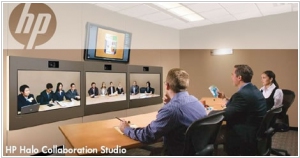
In 2009, Cisco acquired Tandberg, the leading provider of videoconferencing solutions, solidifying its dominant position in the market. Naturally, this prompted competitors to take action. Initially, rumors circulated that HP would purchase Polycom, the second-largest player in the market. However, it became apparent that Polycom possessed a stronger foothold and greater interest in the videoconferencing industry than HP. Just yesterday, Polycom announced its acquisition of HP's video conferencing business for $89 million. HP primarily focuses on high-end telepresence systems marketed under the Halo brand, which will complement Polycom's primarily low-end video conferencing solutions in an organic manner. Market experts, however, believe that the main competition lies not between the two industry giants, Cisco and Polycom, but between two distinct approaches to videoconferencing. The first approach entails expensive hardware systems (exemplified by Cisco and Polycom), while the second revolves around affordable and mobile Internet services such as Microsoft Skype, Google Talk, and GoToMeeting.


